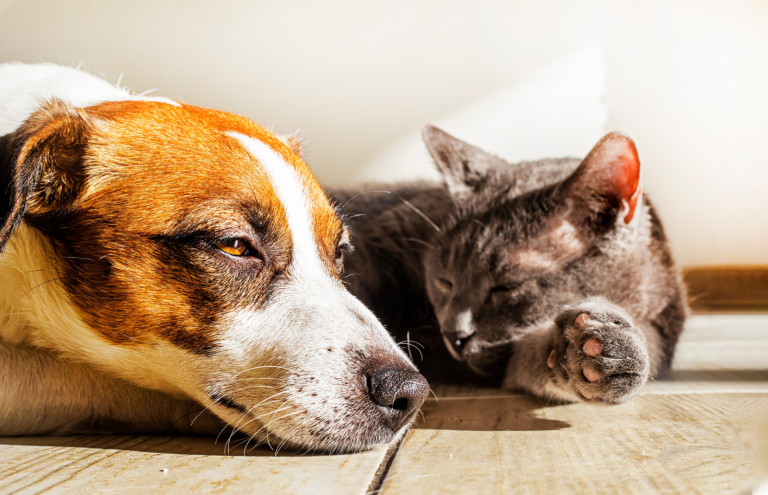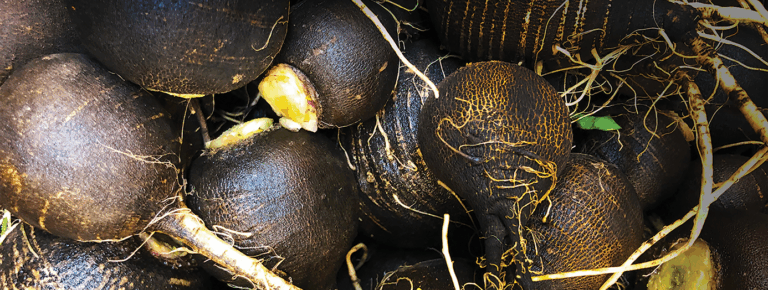The Nervous System, Pet Rehab, and Veterinary CSI
The Nervous System
The nervous system is important for dogs and cats because, like in humans, it “governs the function for the entire body” (03:40). The nervous system needs energy production via the mitochondria in the form of ATP to adequately perform its important roles in communication throughout the body.
There is a high concentration of polyunsaturated fatty acids (PUFAs) and other lipids in cell membranes, which are important for nervous system health (04:59). Cell membranes help the nervous system fulfill its key function of communicating through electrical signals.
Because the nervous system has high metabolic activity, its nutritional requirements are also high, including amino acids, B vitamins, and other vitamins and minerals (06:48). Thus, a nutrient-dense diet is important for nervous system health, as well as the gut microbiome, which influences nervous system function (08:25).
What supplemental nutrition supports healthy mitochondrial function? (13:50)
- B vitamins
- PUFAs
- Antioxidants
- Vitamin E
- Vitamin C
- Resveratrol
- Green tea extract
- Bilberry
The Cell Danger Response
The cell danger response (CDR) occurs in the mitochondria as a healthy metabolic response to any cellular threat with the potential to overwhelm cells in the body (09:34). The CDR can activate the immune system for protection as needed. In cases of chronic CDR – described by Dr. Morgan as the CDR getting “stuck” – internal toxicity or other dysregulation can occur. Nutritional support is key for a functional CDR (12:16).
Pet Rehabilitation
Rehabilitation is about restoring health to a previous level of function, utilizing multiple modalities as needed to address lack of function or other problems such as reduced range of motion, soft tissue restriction, pain, and inflammation (16:10). Dr. Morgan specializes in various modalities to address these problems in the clinic. She also provides a variety of exercise routines that a pet owner can help their pet complete at home during recovery (18:09).
What Are the 4 Main Components of Veterinary CSI? (26:15)
- Diet
- Digestion
- Detoxification
- Drainage
Diet is an important first step toward wholistic pet health because it is important for a wide variety of nutrients to be absorbed into the body to support daily functions (27:27).
Dr. Howell’s Three Qualitative Investigative Methods (32:20)
- Inquiry
- Observe
- Palpation
Advice for A New Veterinarian (35:40)
- Educate and communicate with your clients
- Keep a healthy work-life balance
- Practice self-care
Making Your Practice Unique (39:35)
- Make your practice a calming place for humans and animals
- Consider the pet-owner relationship
- Be practical and compassionate
- Focus on nutrition
Other Relevant Links
>>> Dogs as a model for early Alzheimer’s disease
Special guests:
Ann-Margret Morgan, DVM, CCRT, CVA, VSMT, CVPP
Dr. Morgan is a 1992 graduate of the Ontario Veterinary College in Ontario, Canada. She practiced for seven years in the Niagara Peninsula, gaining interest and knowledge in both complementary therapies and holistic medicine. She earned her certification in veterinary spinal manipulation from the American Veterinary Chiropractic Association in 1998 and then went on to receive her certification in veterinary acupuncture from the International Veterinary Acupuncture Society in 1999.
After crossing the Canadian border, Dr. Morgan practiced both traditional and holistic medicine for over six years at Silver Spring Animal Wellness Center in Milwaukee, gaining experience with herbs and nutrition to accompany her growing knowledge in complementary therapies. In 2005, she completed training in canine rehabilitation at the Canine Rehabilitation Institute® in Loxahatchee, Florida, and then joined the team at Pewaukee Veterinary Service in 2006 as director of the Wisconsin clinic’s rehabilitation center. She continues to broaden her special interests, which now include pain management and nutritional therapies. Dr. Morgan is a certified canine rehabilitation therapist (CCRT) and is a member of the American Holistic Veterinary Medical Association and the International Veterinary Academy of Pain Management.
Sue Howell, DVM, CVFT, CVA
Dr. Sue Howell began integrating whole food therapies with conventional medicine over 15 years ago, a transition that revitalized her passion for veterinary medicine. This experience led her to a position with Standard Process where she had the opportunity to educate other veterinarians about the power of whole foods. Her interest in wholistic medicine has expanded to include certification in Traditional Chinese Veterinary Medicine acupuncture and food therapy from the Chi Institute, and professional level and advanced clinical training in Nutrition Response Testing from Ulan Nutritional Systems. In December of 1997 she opened Thrive Wholistic Veterinary Care, a practice dedicated to changing lives, one pet at a time, through nutrition, whole food therapy and acupuncture.
Please note: During the recording of this podcast, our hosts transitioned from live studio recording to remote recording from two different locations.








